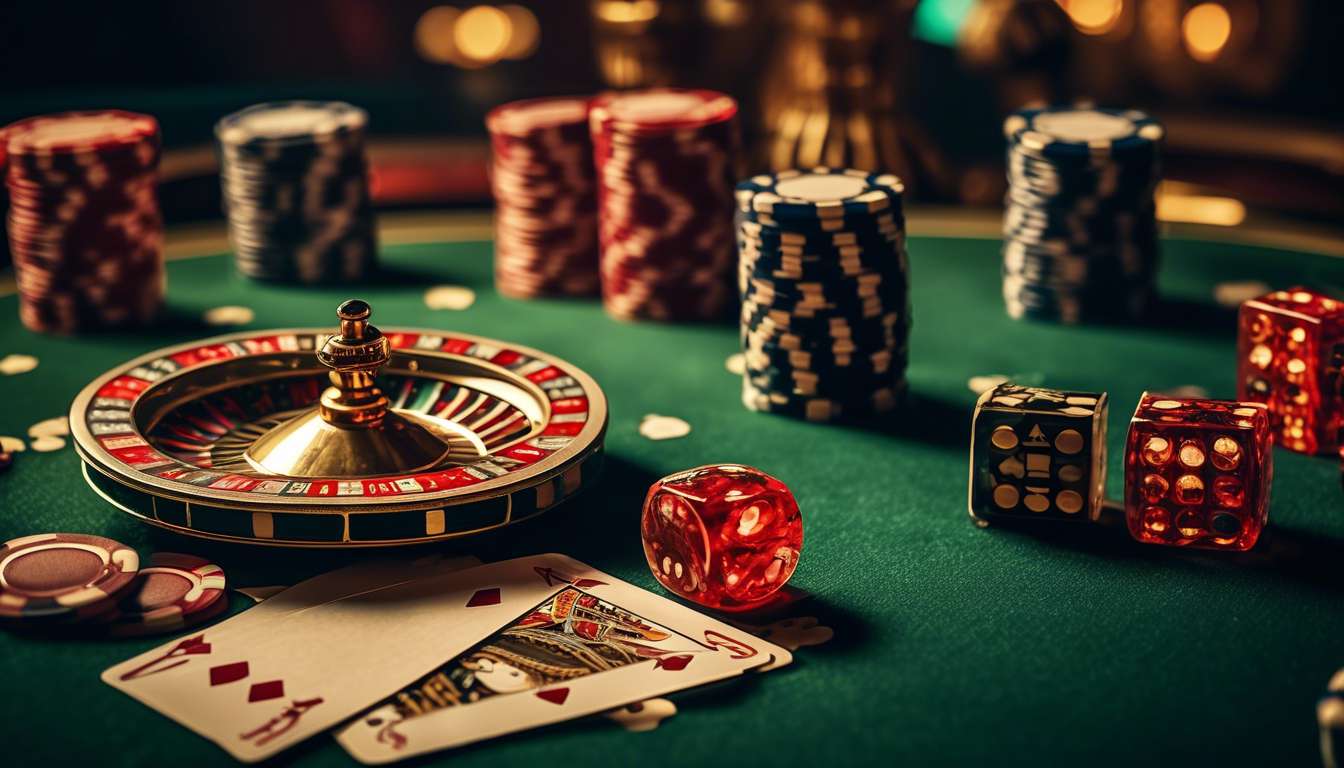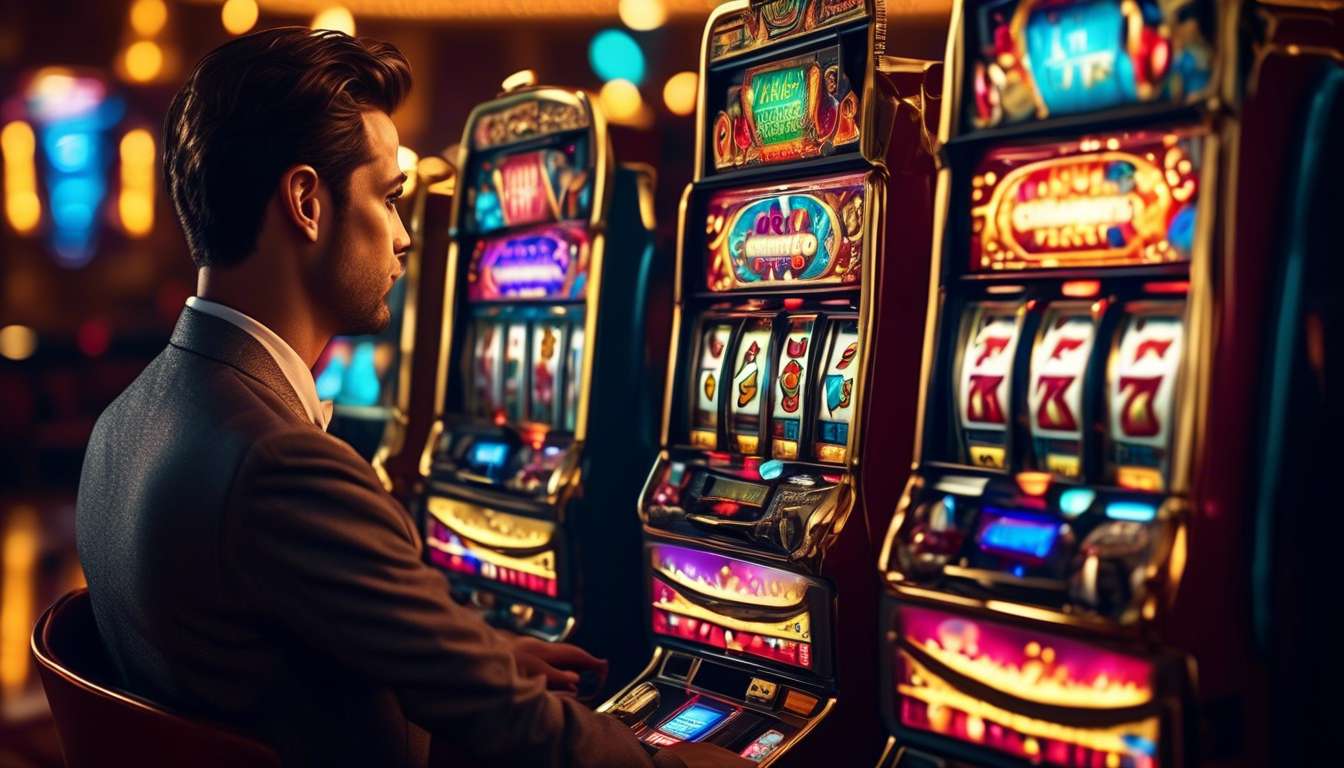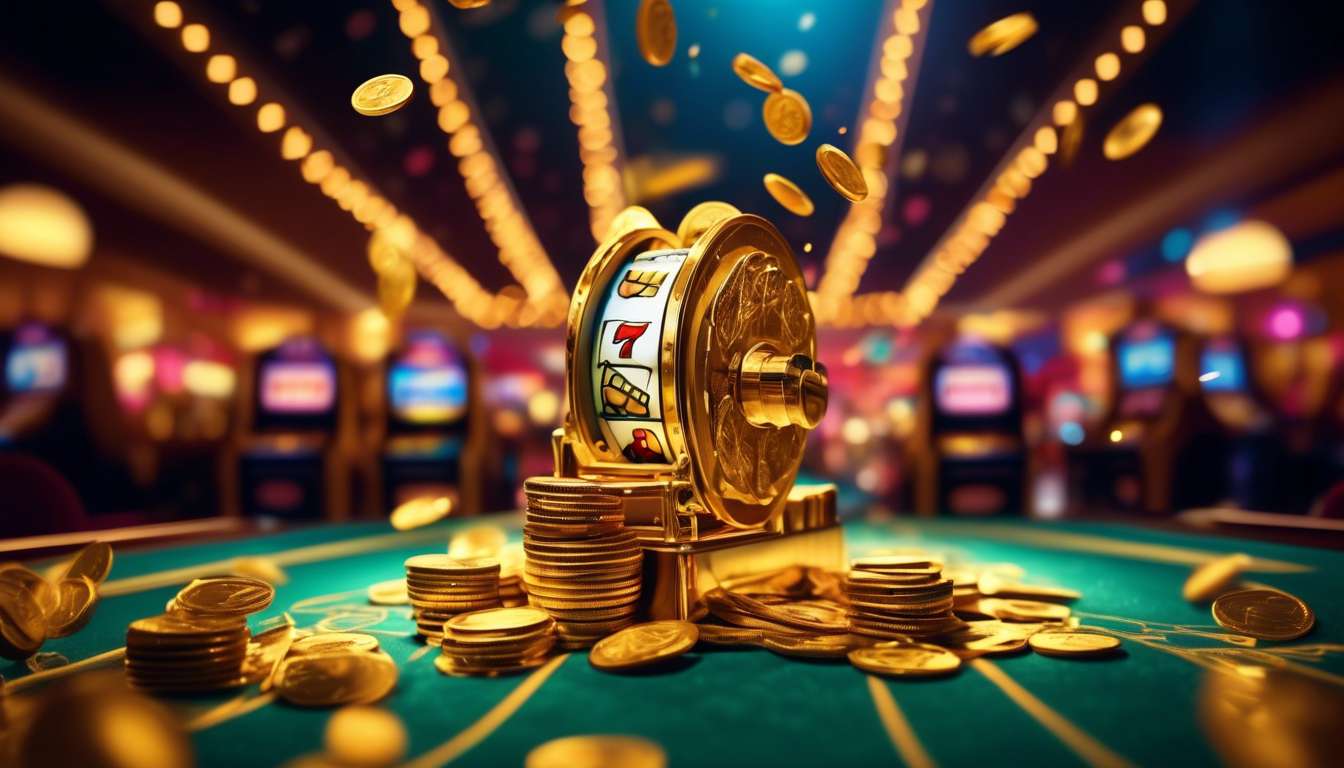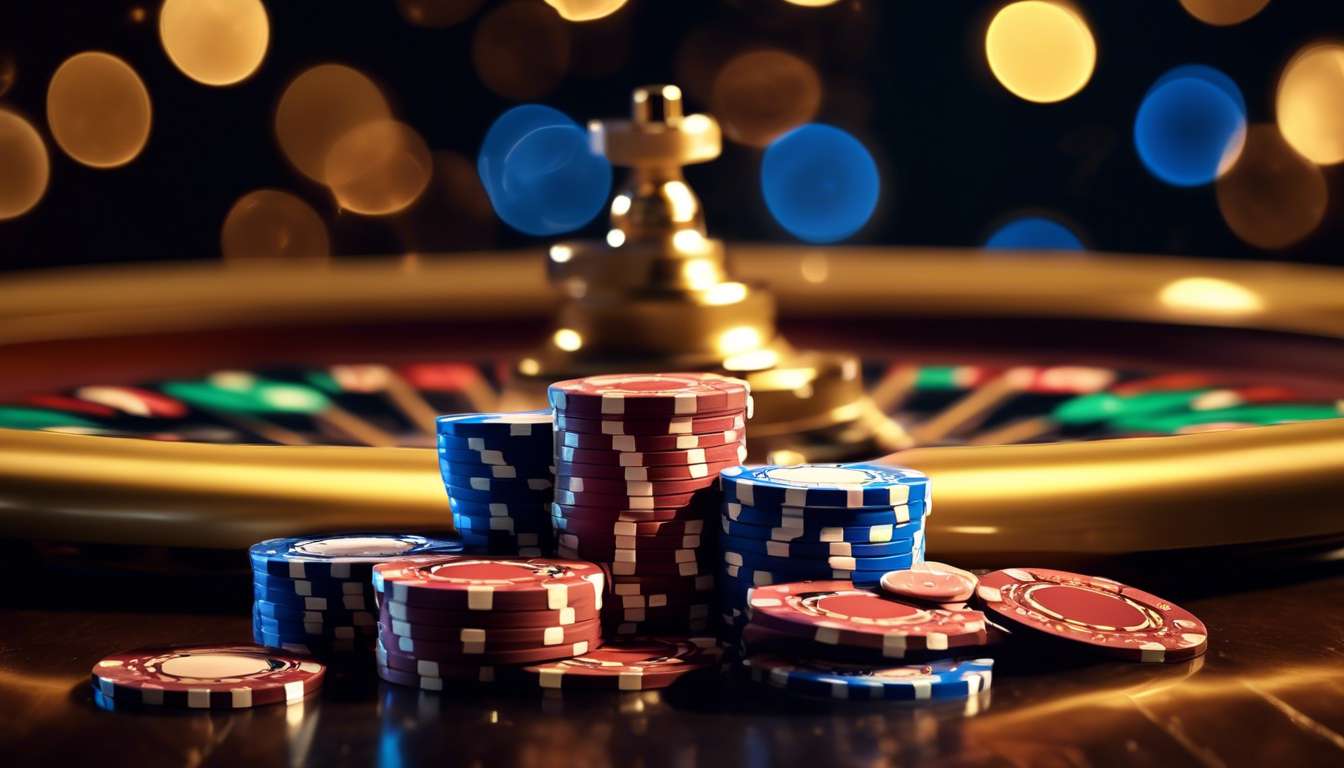The vibrant atmosphere of casinos captivates guests with dazzling lights, the clinking of chips, and the excitement of potential wins. Beyond this surface-level entertainment exists a rich tapestry of history and intrigue that often goes unnoticed by most players.
We often find ourselves captivated by the games, yet unaware of the fascinating stories that gave birth to these timeless pastimes. In this article, we delve into the unexpected origins behind some of our favorite casino games.
From ancient civilizations to modern innovations, we uncover eight surprising facts that challenge our perceptions and deepen our appreciation for these games of chance. By exploring these origins, we not only gain insight into the evolution of entertainment but also connect with the cultures and stories that have shaped the casino experience as we know it today.
Together, let’s journey through time and discover the secrets hidden behind the chips and cards.
Ancient Origins of Dice Games
Dice games have a rich history that dates back thousands of years to ancient civilizations. As we roll the dice today, we’re connecting with a tradition that unites us with our ancestors.
Origins of Dice:
- First used in ancient Mesopotamia and Egypt
- Served as a pastime
- Used as a tool for decision-making and divination
It’s fascinating to think that long before Roulette and Poker became staples of modern casinos, dice games were already bringing people together, fostering community and shared excitement.
We’ve come a long way from those early days, yet the thrill we experience when tossing dice is timeless. It’s this same thrill that we find in the spinning wheel of Roulette or the strategic plays in Poker.
Common Elements Across Games:
- Element of chance
- Shared excitement and community
- Connection to something bigger that transcends time and culture
While each game has its own complexities, they all share these common threads, inviting us to be part of a long-standing tradition.
Influence of French Nobility on Roulette
French Nobility and the Evolution of Roulette
French nobility played a pivotal role in shaping the game of Roulette, transforming it into a sophisticated pastime that captured the imagination of aristocrats. We can picture them gathered in opulent salons, the excitement in the air palpable as the wheel spun—a thrilling alternative to the dice games that had long entertained the elite.
Roulette wasn’t just a game; it was a social experience that connected people, much like Poker does today.
Origins and Cultural Integration
As we delve into the origins, we find that the French upper class not only embraced Roulette but also refined it, ensuring it became an integral part of their culture. The game’s elegant simplicity and air of exclusivity resonated with their desire for refined entertainment.
Influence and Global Spread
This influence was significant because it laid the groundwork for Roulette’s spread beyond France, captivating others who sought to emulate the glamour associated with the French elite.
Through this shared fascination, we see how Roulette became a universal symbol of chance and sophistication.
Chinese Roots of Keno
The Origins of Keno
Many of us might not realize that the game of Keno traces its origins back to ancient China, where it was devised as a means to fund military endeavors. This connection to history adds a layer of intrigue to our understanding of casino games.
Unique Cultural Heritage
Unlike the dice rolls of chance we often associate with games like Poker or the spinning wheel of Roulette, Keno has a unique cultural heritage that binds us to the past. In ancient times, the Chinese developed Keno as a lottery-like game, using characters from the “Thousand Character Classic” instead of numbers.
Purpose and Impact
This method not only helped finance the Great Wall but also fostered a sense of community among participants who eagerly awaited results.
Adaptation and Global Reach
As Keno made its way to the West, it adapted to suit a global audience, yet its communal roots remain.
Timeless Appeal
We can appreciate how the timeless appeal of Keno brings us together, much like Poker and Roulette, transcending borders and uniting us in shared excitement and anticipation.
Birth of Poker in America
In the early 19th century, poker emerged on the American frontier, quickly becoming a staple pastime in riverboats and saloons. We can imagine ourselves there, surrounded by fellow pioneers, eagerly gathering around tables to test our wits and luck.
Poker wasn’t just a game; it was a social experience, a way to connect and share stories as we carved out new lives.
Unlike dice and roulette, which rely heavily on chance, poker brought a thrilling blend of skill and strategy. The game evolved from older European card games, adapting to the vibrant American scene with a unique twist that made it our own.
As we shuffled and dealt, we discovered:
- A shared language in the cards
- A sense of belonging that transcended backgrounds
As poker spread across the country, it became more than just a pastime. It was a symbol of the American spirit—bold, strategic, and ever-evolving. Together, we embraced poker, shaping it into a cornerstone of our gaming culture.
Evolution of Slot Machines
We’ve witnessed slot machines transform from simple mechanical devices into the sophisticated digital marvels that dominate casinos today. As we gather around these machines, we feel a sense of belonging, united by the shared experience of anticipation and excitement. Slot machines, much like dice, roulette, and poker tables, offer us a chance to test our luck and strategy. But their journey from basic lever-operated gadgets to complex video displays is truly fascinating.
Initially, slot machines were straightforward, with:
- Mechanical reels
- A lever that players pulled to spin
Over time, they evolved alongside technological advancements, embracing:
- Digital screens
- Intricate software
This evolution mirrors the progression seen in other classic games like dice and roulette, where technology has enhanced our gaming experience. Today’s slot machines even incorporate elements of poker, offering us dynamic and interactive gameplay.
As we spin the reels, we’re part of a rich history, continuously shaped by innovation and community.
Spanish Origins of Blackjack
Blackjack’s Origin and Evolution
Many of us might be surprised to learn that blackjack, one of the most popular card games in casinos, traces its origins back to 17th-century Spain. Known originally as “Vingt-et-Un” or “Twenty-One,” this game was a favorite pastime among Spaniards, much like how dice and poker entertain us today.
Game Rules and Appeal
Blackjack’s rules emphasized reaching 21 points without busting, a thrilling challenge that captivated players, much like the spin of the roulette wheel does now. As we gather around the table, it’s fascinating to think about how this iconic game crossed oceans and cultures, eventually becoming a staple in the bustling casinos we frequent together.
Unique Blend of Chance and Skill
Unlike the randomness of dice or the strategy of poker, blackjack offers a unique blend of chance and skill, which fosters camaraderie and friendly competition. By playing, we join a legacy of players who have cherished the excitement of hitting 21 for centuries, connecting us through a shared love of the game.
Innovation of Baccarat in Italy
In the heart of Italy, baccarat emerged as a game that combined elegance with the thrill of high-stakes gambling. It captivated players with its refined rules and rich history. We can imagine the allure of this game, drawing people together in opulent halls where strategy and chance danced in harmony.
Unlike the rolling dice of craps or the spinning wheel of roulette, baccarat offered a sophisticated alternative that resonated with those who craved a more nuanced experience.
As we gathered around the table, the air buzzed with anticipation, much like a high-stakes game of poker.
- Simplicity: Baccarat’s simplicity in determining the winner through the highest card total made it accessible.
- Strategic Depth: Its strategic depth kept us on our toes.
In Italy, this game became a social glue, binding us in shared excitement and camaraderie.
Through the centuries, baccarat evolved, but its Italian roots remind us of a time when games were as much about connection as they were about winning.
Rise of Craps in New Orleans
In the vibrant streets of New Orleans, a dynamic game known as craps quickly gained popularity, bringing together diverse crowds eager to test their luck and skill. We found camaraderie around the craps table, where the clatter of dice echoed the lively spirit of the city.
Unlike the solitary focus of poker or the calculated strategies of roulette, craps invited everyone to unite in shared anticipation and excitement. As we gathered around, the dice became our common language, a symbol of hope and thrill.
The roots of craps in New Orleans trace back to a simplified version of a European game called Hazard. It was in these bustling streets that the game transformed and flourished, drawing people from all backgrounds.
We became part of a tradition that transcended social boundaries, welcoming newcomers to experience the same exhilaration. The rise of craps in New Orleans reminds us that in the roll of dice, we find a sense of belonging and community.
What are some of the oldest known gambling games in history outside of the ones mentioned?
Gambling Games in History
We’ve explored some of the oldest known gambling games in history outside of the ones previously mentioned. It’s fascinating how these games have evolved over time, reflecting societal changes and cultural influences.
Evolution and Cultural Influence
From ancient dice games to early card games, the roots of gambling run deep. Understanding the origins of these games gives us insight into:
- Our shared human history
- The universal appeal of chance
- The strategic elements in gaming
Significance
The evolution of these games illustrates not only cultural shifts but also the enduring allure of gambling throughout human history.
How has the regulation of casino games evolved over time across different countries?
As gambling enthusiasts, we’ve noticed the evolution of casino game regulation across various countries.
Over time, laws have adapted to reflect societal values and concerns. Some nations have legalized gambling to boost tourism and revenue, while others have imposed strict regulations to prevent addiction and crime.
This ongoing evolution shows that governments are continuously striving to balance the benefits of gambling with the need for responsible oversight.
What role do myths and legends play in the history of casino games?
Myths and legends have always been intertwined with the history of casino games. They add an element of mystery and excitement to the origins of these popular pastimes.
From stories of legendary gamblers winning fortunes to tales of cursed games, myths and legends bring an extra layer of intrigue to the world of casinos.
These stories have been passed down through generations, shaping the way we perceive and enjoy casino games today.
Conclusion
You’ve just scratched the surface of the intriguing origins behind your favorite casino games. Each game, from ancient dice games to those influenced by French nobility, has a unique and surprising history.
Next time you play:
- Roulette
- Poker
- Blackjack
Remember the rich cultural heritage that underpins these games.
So, the next time you hit the casino floor, take a moment to appreciate the centuries of history that have shaped the games you love to play.




